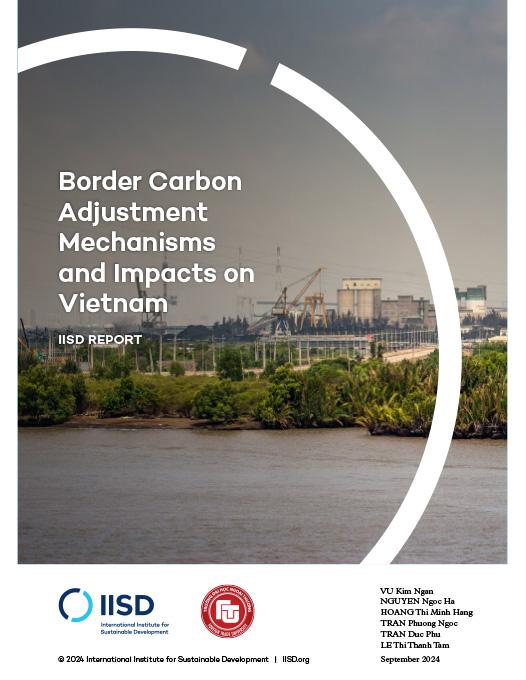Border Carbon Adjustment Mechanisms and Impacts on Vietnam
This country report is based on background research by IISD and the Foreign Trade University (FTU) of Vietnam to assess the potential impact of border carbon adjustment (BCA) schemes, particularly the European Union’s Carbon Border Adjustment Mechanism (CBAM) on Vietnam, supplemented by detailed discussion in two dialogues organized within the country. The two dialogues heard the views and perspectives of stakeholders from government, industry, think tanks and academics, civil society, finance providers, and labour. While acknowledging the positive role of BCAs to reach the net-zero target of Vietnam by 2025 under the Paris Agreement, these views and perspectives also outline the challenges for countries like Vietnam. These include
- adverse impact on exports and thus on economic activity and employment in the short term;
- substantial cost of compliance, and limited availability of finance, investment, and technology to transform the current production methods in the affected sectors; and
- possibility of the emergence of individual BCA schemes with different technical and administrative requirements that will make compliance very difficult for small and medium-sized enterprises and developing countries.
The stakeholder discussion led to recommendations for achieving balance between climate action and equity by adhering to the principle of common but differentiated responsibilities and respective capabilities. The report also recommends international consultations and dialogues to identify best practices that can inform the design of individual BCAs.

